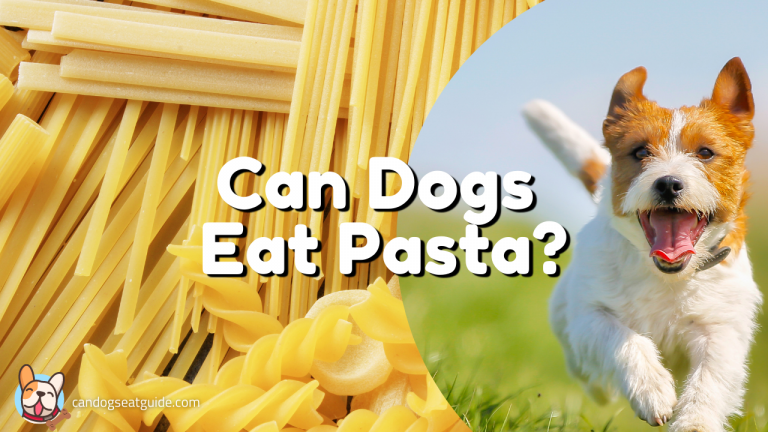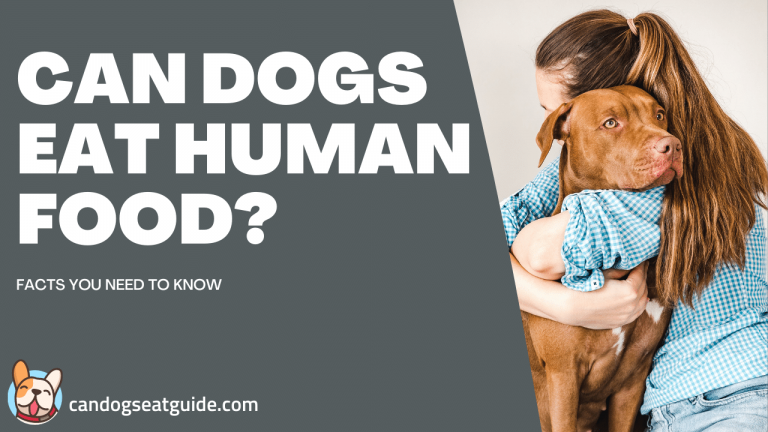Dogs need protein to function properly. If they don’t get enough protein they will be lazier, their energy level will drop, and their skin and coat won’t be shiny and soft.
There are many human foods that are a great source of protein and they are safe for dogs, too. But today we will see if can dogs eat eggs. We all know that they are the best protein option for us people but does it the same for dogs?
Can dogs eat eggs? Can dogs eat eggs every day? Can dogs eat eggs cooked? I am sure these are the first questions that just got into your mind.
But I am here to the rescue. All these and even more questions will be answered in the next 3-4 minutes.
Can Dogs Eat Eggs? Are They Safe?
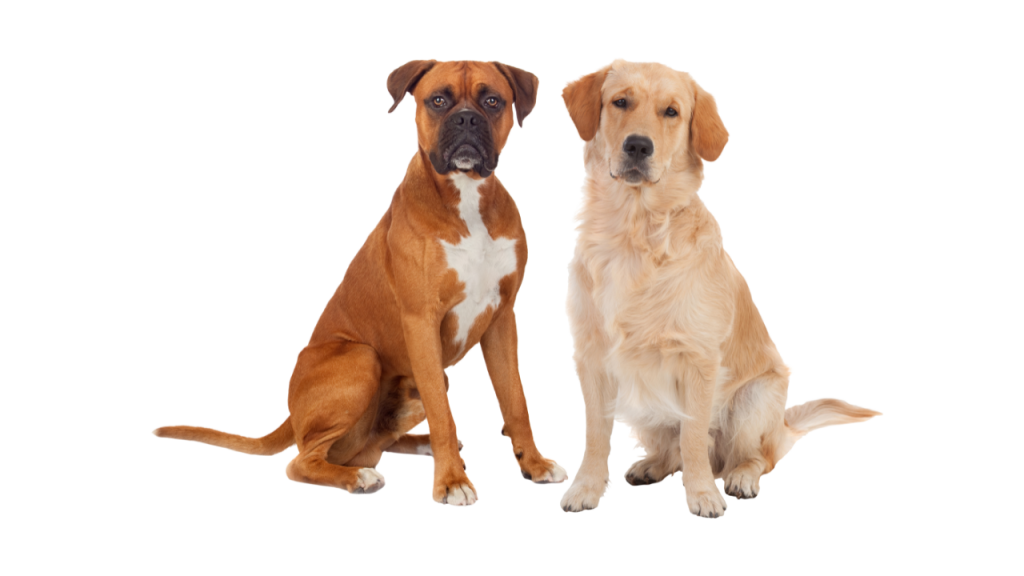
Yes, dogs can eat eggs.
Why? How? Raw or Cooked?
Eggs are a great source of protein, but also of linoleic acid and vitamin A. These three nutrients are a great combination for the skin and coat of our dogs.
The safest way to give eggs to your dog is by cooking them. The healthiest way is by boiling, but you can give them scrambled or sunny-side-up cooked eggs too.
Why Raw Eggs Are So Bad For Dogs?
Dogs shouldn’t raw eggs. They are not safe because there is a risk of salmonella poisoning. Salmonella germ can be transmitted from dogs to humans and from humans to humans, so you will be at risk, too.
Eating raw eggs can lead to biotin deficiency. that can happen because egg whites contain an enzyme called avidin. This enzyme prevents the absorption of biotin in the dog’s body.
Raw eggs also can have some bacterias in them that may hurt your pooch.
There is another reason why dogs mustn’t eat raw eggs and that is because they can be allergic. If they are allergic to eggs they may experience these symptoms:
- Sneezing;
- Swelling;
- Coughing;
- Lethargy;
- Heavy breathing.
What Is Salmonella Infection? Signs?
Salmonellosis is caused by the Salmonella bacterium. This infection leads to gastroenteritis, septicemia, or spontaneous abortions. This disease can be transmitted to humans.
Here is a list of signs that you may notice in your dog if it has salmonellosis:
- Fever;
- Diarrhea;
- Lethargy;
- Shock;
- Anorexia;
- Vomiting;
- Weight loss;
- Dehydration;
- Fast heart rate;
- Skin disease.
Puppies and old dogs are in the riskiest group of getting salmonella infection. As their immune systems are still undeveloped or too weak already.
If you know that your dog had managed to eat raw eggs, then look out for any of these signs but also make sure that your vet knows about this situation. Sometimes dogs may not show any signs.
Salmonella germs can be found in the stool of dogs for 4 to 6 weeks after the infection. Make sure that your house is cleaned well so you can stop the spread of germs.
Can Dogs Eat Eggs If They Are Cooked?
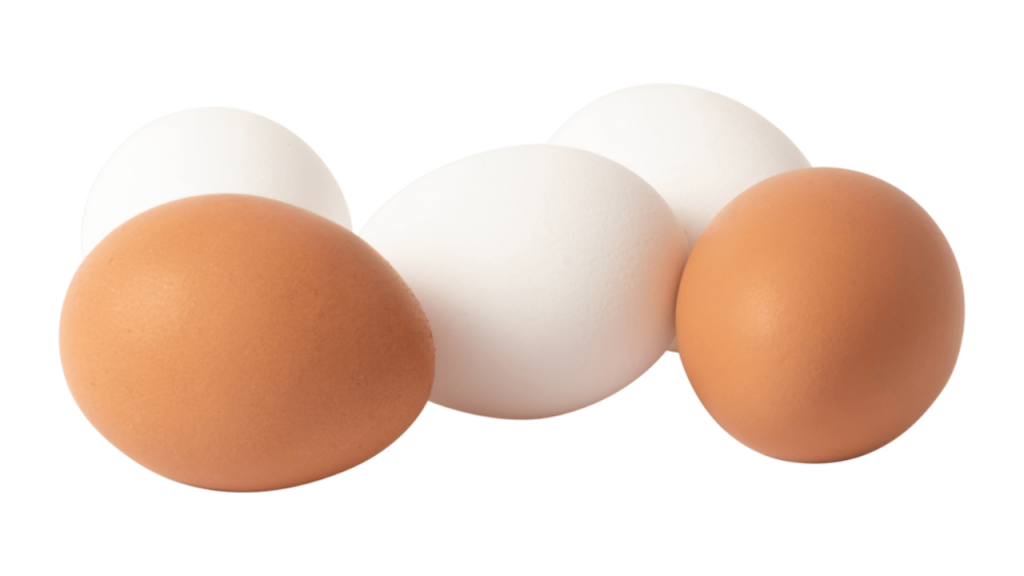
Yes, dogs can eat cooked eggs. But before feeding your dog eggs make sure to ask your dog if that is okay. Some dogs mustn’t eat dogs.
No matter how you have cooked your dog’s eggs, they won’t lose the protein content, they will lose some part of other nutrients but the protein will stay.
Don’t forget that you shouldn’t add any seasoning, oils, spices, or salt when you are cooking food for your dog. They can upset the stomach of a dog.
Too many eggs can be a reason for obesity or some other health problems. Remember that dogs shouldn’t be a full meal, they should be part of it or added just as a treat.
Can Dogs Eat Eggs: Nutrition Aspects
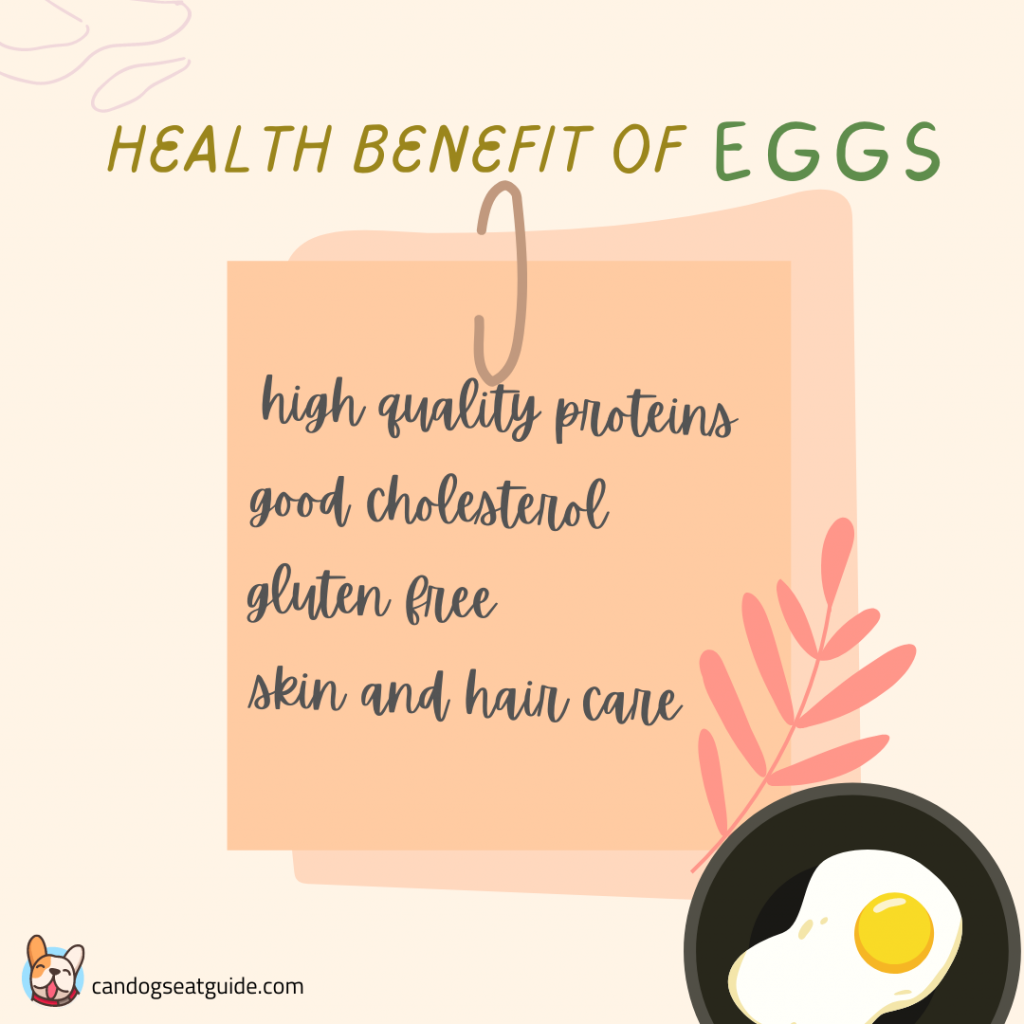
Eggs are full of nutrients such as :
- Iron;
- Fatty Acids;
- Protein;
- Vitamin A;
- Folate;
- Riboflavin;
- Selenium;
- Vitamin B12.
This pack of vitamins helps for healthy skin and a shiny coat for your doggo.
Can Dogs Eat Eggs: Dog-Friendly Recipes
1. Berry Egg Oatmeal For Dogs
Servings: 1-2;
Ingredients:
- ¼ cup of oats;
- ½ cup water;
- 1 large egg, lightly beaten;
- ¼ cup berries (fresh or frozen);
Steps:
- In a small saucepan, heat oats and water over medium heat for about 3 minutes.
- Stir the egg into the oats and cook for 2 minutes. Stir berries (cranberries, raspberries, strawberries, blackberries) into the saucepan and cook for another 2 minutes.
- Put oatmeal in a bowl and allow cooling before serving your dog.
2. Spinach and Egg Frittata

Ingredients:
- 2 tablespoons of extra virgin olive oil;
- 2 cups or 6 oz of a bag of fresh spinach;
- Optional: 2 cups or 6 oz of a bag of fresh broccoli;
- salt and pepper;
- 8 eggs;
- Optional: ¼ cup of parmesan cheese;
- 3 tablespoons of low-fat milk.
Instructions:
- Place 1 tablespoon of olive oil in a skillet with medium heat.
- Add spinach and other optional ingredients (broccoli).
- Stir for 3-5 minutes until soft. Exhaust any excess liquid from the pan.
- Beat 8 eggs in a large bowl. Stir in salt and pepper to taste.
- Add milk and spinach mixture to the eggs.
- Add parmesan (optional).
- Heat another tablespoon of olive oil over the skillet with medium-high heat. You want it hot enough to sizzle when dropping your egg mixture into the pan.
- Drop a small on the pan. If it sizzles, pour the remaining egg mixture into the pan.
- Swirl the pan as it’s cooking. Shake the pan gently to move the egg mixture around.
- Once your eggs have cooked turn down the heat to low.
- Cover with a lid or even a pizza pan if you don’t have a lid. Cook on low for approximately 10 minutes.
- Occasionally check the omelet or frittata, using a spatula to loosen the bottom and tilt the pan so it doesn’t burn.
- The bottom will be cooked, the top will be a little loose.
- Place the entire pan into the oven on broil to finish the top for approximately 1-2 minutes.
- Remove and shake the pan to make sure the frittata isn’t sticking.
- Let it cool and share with your dog.
3. Egg and Rice Homemade Dog Food
Ingredients:
- 1 beaten egg;
- 1/3 cup of applesauce;
- 1 cup of cooked vegetables (in the video are used peas and green beans);
- 1 cup of cooked brown rice;
- 1 tbsp. brewer’s yeast.
Instructions are in the video:
You can store leftovers in an airtight container in the refrigerator for 3-5 days or freeze them in an airtight container for up to 3 months.
11 Fun Facts About Eggs
- To tell the difference between a raw egg and a hard-cooked one, spin it. Hard-cooked eggs spin easily, and raw eggs wobble.
- Eggs age more in one day at room temperature than in one week in the refrigerator. So keep them in the fridge.
- It takes a chicken 24 to 26 hours to produce an egg.
- The fastest omelet maker in the world made 427 two-egg omelets in 30 minutes.
- Kiwis lay the largest eggs in relation to the body size of any species of bird.
- Harriet, a hen from the United Kingdom, laid the world’s largest egg in 2010. Her astonishing egg measured 9.1 inches in diameter.
- When it comes to the number of eggs laid each year, Lowa leads the nation with more than 14.8 billion eggs produced annually. Ohio is the next state in line, producing 7.9 billion eggs each year.
- Egg yolks are one of the few foods that naturally contain Vitamin D.
- Eggs are rich in choline which promotes normal cell activity.
- Both the egg white and egg yolk contain 3 grams of protein each.
- The thickness of an eggshell depends on the age of the laying hen.
FAQs
Can dogs eat boiled eggs?
Yes, boiled eggs are a perfect treat for dogs.
Can dogs eat eggshells?
The shells of eggs contain calcium, but there are many better options than eggshells. Don’t give eggshells to your dog.
Can dogs eat eggs every day?
Yes, dogs can eat AN EGG a day. But it’s better if you give eggs only a few days a week, so your dog can’t overdose on protein.
Can dogs eat egg yolk?
Dogs can eat egg yolks and egg whites. Both have the same amount of protein. Egg yolks have more calories than egg whites.



